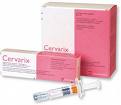January is Cervical Health Awareness Month
Somewhere around 11,000 new cases of cervical cancer will be diagnosed among American women in 2010. An estimated 4,000 women will die from this disease, the only cancer known to be exclusively caused by a common virus, the Human Papillomavirus (HPV). High-risk HPVs may cause cases of mouth, head and neck cancer as well, according to research recently completed.Misread Pap Smear Test Malpractice Lawsuit Attorney
Other than those practicing lifelong abstinence, most adults acquire an HPV infection during their lifetimes. But mostly the infections turn out harmless and dissappear on their own.
Other infections persist and if they remain untreated for years, or even decades, may lead to cancer. Precancer detection is essential for treatment to prevent the development of cancer. Get a Pap test regularly from a gynocologist in order to detect when HPV causes cells to change long before they progress to cervical cancer.
Regular screening is still recommended despite any new information coming out. Cervical cytology screening is recommended for women every two years beginning at age 21.
The National Cervical Cancer Coalition (NCCC) founded in 1996, is a grassroots nonprofit organization dedicated to serving women with, or at risk for, cervical cancer and HPV disease. For more information visit the Web site at www.nccc-online.org.
Labels: Cervical Cancer Awareness, Cervical Cancer Prevention, Cervical Cancer Screening, HPV







